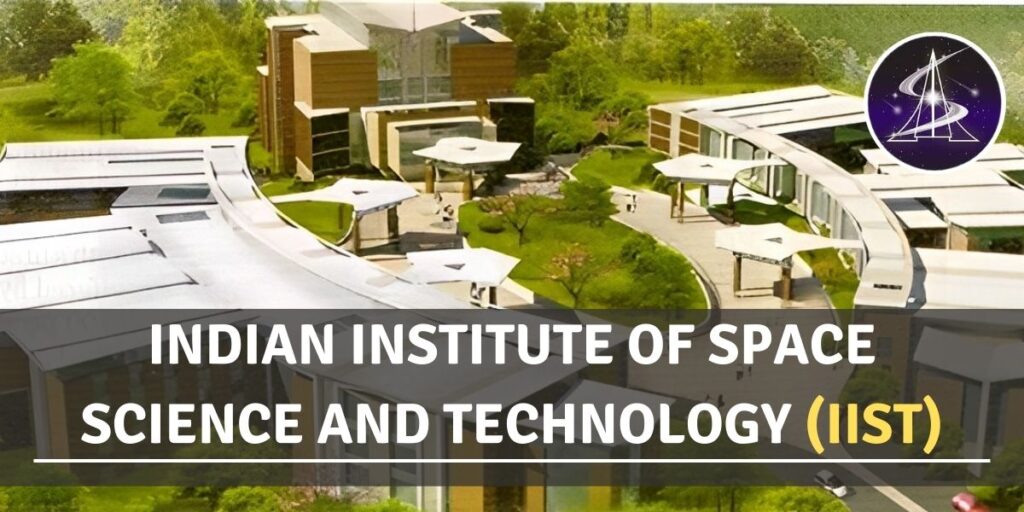The Indian Institute of Space Science and Technology (IIST) is a top institute in space science. Situated in Thiruvananthapuram, it was established in 2007 by the Indian Space Research Organization (ISRO) under the Department of Space, Government of India. IIST is the best place to start if you want to be an ISRO scientist. ISRO directly recruits IIST students after the completion of their programs. The institute offers undergraduate, postgraduate, and doctoral programs in various disciplines of science and technology. This blog will provide detailed information about the following:
- Academic programs
- admission processes
- fees
- career opportunities
Academic Programs:
IIST has undergraduate, graduate, and doctoral programs in various fields, such as aeronautical engineering, avionics, mathematics, physics, chemistry, and the humanities. These programs are focused on space sciences and technology linked to it. The institute offers the following courses:
Undergraduate Programs:-
- B.Tech in Aerospace Engineering
- B.Tech in Avionics
- Dual Degree (B.Tech + M.S/M.Tech)
Postgraduate Programs:-
- M.Tech in Aerospace Engineering
- M.Tech in Avionics
- M.Tech in Earth System Science
- Master of Science (M.S) in Astronomy & Astrophysics
- Master of Science (M.S) in Earth System Science
- Master of Science (M.S) in Solid State Physics
Doctoral Programs:-
- PhD in Aerospace Engineering
- Avionics
- Chemistry
- Earth and Space Sciences
- Physics
- Mathematics
- Humanities.
Admission Processes:
For admission to undergraduate programs, you must appear for the Joint Entrance Examination (JEE) Advanced. The admission is based on the rank secured by the candidates in the JEE Advanced. Usually, the cutoff marks are around 50, but the cutoff may vary depending on the program you want to enrol in. So it is better to keep an eye on their official website. The application process starts after the declaration of the JEE advanced result.
You must apply for the Graduate Aptitude Test in Engineering (GATE) or the Joint Entrance Screening Test (JEST) for admission to postgraduate programs. The admission is based on the scores obtained by the candidates in GATE or JEST. If you are shortlisted, you will be called for an interview, which usually takes 10 to 40 minutes.
For admission to doctoral programs, you must appear for the IIST Admission Test (IAT), GATE or CSIR-UGC NET. The admission is based on the performance of the candidates in the respective tests and interviews.
Fees:
The fees for the undergraduate programs at IIST are around INR 2.6 lakhs per year. The fees for the postgraduate programs are around INR 54,000 per semester. The fees for the doctoral programs are around INR 24,000 per semester. However, the fees may vary based on the category of the candidate and the program chosen. In addition to this, there are a few fellowship programs to aid financially challenged students. Research scholars receive Rs. 31,000 monthly, which can be increased later depending on their work.
Career Opportunities:
IIST graduates have many career opportunities in space science and technology. Graduates can work with ISRO, DRDO, NASA, and other reputed organisations in the space industry. Graduates can work in many fields, such as designing and making satellites, planning and carrying out missions, remote sensing, space exploration, research and development, and more. Graduates can also pursue research careers in academic and research institutions.
IIST doesn’t conduct campus placements like IITs, NITs, etc., but if you get grades greater than 6.5 in your bachelor’s program, you will be directly absorbed into ISRO, given that there are enough vacancies. You need to sign a bond while getting admitted to IIST, declaring that you can’t leave before a particular period. The pay scale for newly recruited IISTians at ISRO is Rs. 18,000–34,000, which increases depending on your work experience.
For postgraduates and research scholars, the recruitment process at ISRO is based on interviews and work experience. You can also apply to various national and international tech companies working on developing space technology. You may get absorbed into the DoS( Department of Space), through which you may work for PRL (Physical Research Laboratory), SPL (Space Physics Laboratory), SAC (Space Application Centre), etc. You can even pursue further studies at foreign universities. If you want to know how to get into NASA or DRDO, check out our other blogs.
Conclusion:
Overall, IIST is an excellent place to learn about space science. However, you shouldn’t rely solely on the fact that ISRO directly hires IIST students. It is better to advance your knowledge and experience in your field of interest because this will give you access to more opportunities. Additionally, the IIST campus is on hills far from the city’s centre. For students, this poses challenges in terms of amusement and connectivity. Extracurricular activities receive less attention. But there are many benefits to this. Since the college is new and some areas need improvement, you can take the initiative and help the institution grow. To learn more about space science, look at our other blogs.
About us – SciAstra guides students who want to become scientists and pursue research by helping them secure admissions to top colleges like IISER, NISER, CEBS, ICAR, CMI, etc.
Our mentors are from the top research institutes like IISER, NISER, IACS, CMI, IISC Bangalore, etc. If you want to prepare for IAT / NEST 2023, you can check out our courses and access live classes, recorded lectures, study material, mock tests, doubt-clearing classes, and much more!
To know more about us, click here OR download the SciAstra App from Play Store!





